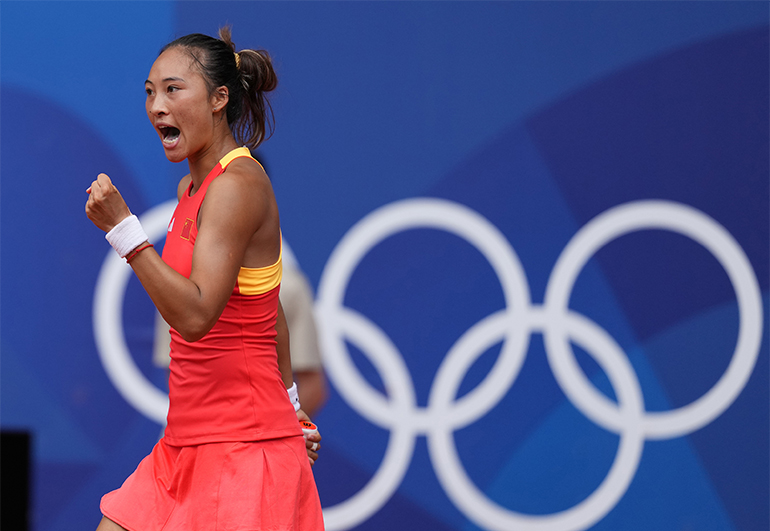 China Enters Golden Age of Tennis After First Women's Singles Olympic Gold, Mixed Doubles Silver, Insiders Say
China Enters Golden Age of Tennis After First Women's Singles Olympic Gold, Mixed Doubles Silver, Insiders Say(Yicai) Aug. 5 -- A new golden age of tennis has kicked off in China after Zheng Qinwen won the country's first women's singles gold at the Summer Olympic Games in Paris, while Wang Xinyu and Zhang Zhizhen took the silver in the mixed doubles event, according to industry insiders.
Chinese tennis players, including Zheng Qinwen and Li Na, the first Asian to win a Grand Slam singles title in 2011, grew up outside the system and were trained by their family and personal investment, Li Jiang, executive director of Yutang Sports, told Yicai, adding that this is unlike domestic table tennis and badminton players, who train on government expenses.
Zheng Qinwen's success proves that Chinese people can win championships in major international sports such as tennis, Li Jiang noted. It also shows that China can produce outstanding world-class athletes via a market-based approach, so more parents may be willing to invest in their children turning professional, while the proportion of market-oriented forces driving the development of sports in China will likely continue to rise, Li added.
Zheng Qinwen is only 21 years old, fluent in English, and speaks wisely, showing another side of China's Olympic stars, Li pointed out. She is more likely to be recognized by the European and US markets and the younger generation because she was not trained by the system, likely increasing her commercial value, Li said.
In the Forbes 2023 world's highest-paid female athletes list, Zheng Qinwen ranked 15th with USD1.7 million in prize money and USD5.5 million from sponsorships, with her commercial value expected to surge after winning the Olympic gold.
Many other Chinese tennis players have also been competitive internationally over the past two decades, Zhang Qing, founder and chief executive officer of Key-Solution Sports Consulting, said to Yicai. This is thanks to the more mature tennis environment in the country, Zhang noted.
China holds many tennis tournaments, including the ITF World Tennis Tour Junior Finals for teenagers, providing young players with abundant training and competitive opportunities, Zhang added.
After over 20 years of reform and practice, China's domestic tennis player cultivation system has matured, forming a mechanism with the combined efforts of the family, the government's sports department, and the market, according to Zhang. Players may be mainly sponsored by their families in the early stages, but they will have the chance to get funds from various training programs when they grow, Zhang said.
Editors: Tang Shihua, Martin Kadiev